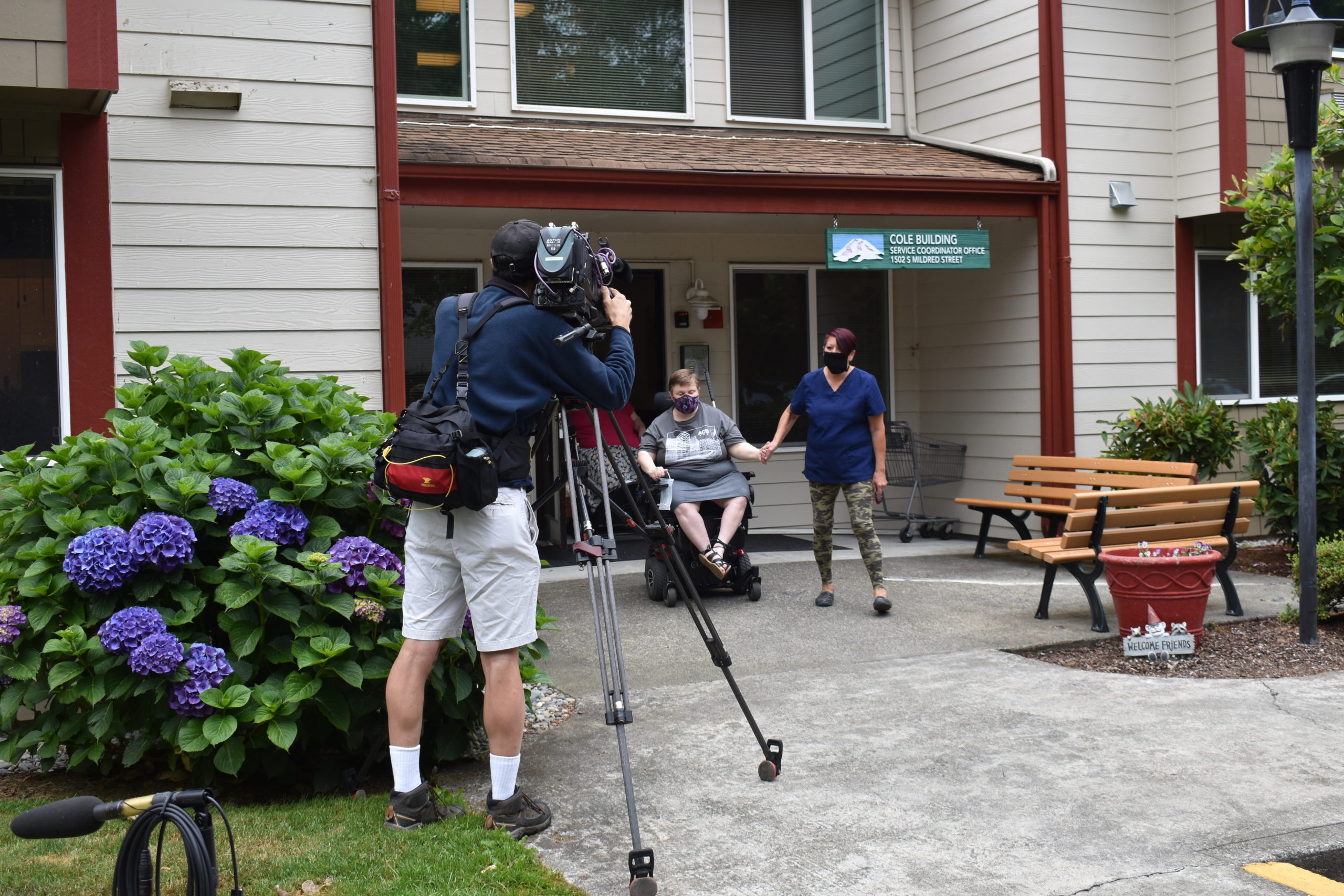Fighting for Long-Term Care Budget
July 28, 2020
KWA recently joined a Coalition of Long-Term Care advocates, assembled in response to recent budget reduction exercises that propose significant cuts to critical services that support Washington’s seniors and people with disabilities. Assisting the state’s most vulnerable populations is at the heart of services provided by KWA. That’s why I want to tell you about Sarah Howe, KWA In-Home Care client, and Terry Kriessler, KWA Caregiver.

Terry visits Sarah six days a week to help her with remembering to take her medication to simple around the house chores, cooking and cleaning, and keeping up with her appointments. But most of all, she provides friendship. Sarah is blind and, in a wheelchair, depends on Terry’s visits which all her to remain in an independent living facility rather than in a nursing home.
Terry drives Sarah to her physical therapy appointments, does grocery runs, and ensures that Sarah doesn’t have to take public transportation in such a dangerous time. She is at high risk of contracting COVID-19 and safety in public spaces is paramount.
Sarah lives with her cat, Miracle, enjoys singing and putting smiles on the faces of her friends. Sarah is a fighter and advocate for herself and others who desire to live independently. Nursing homes are not the answer to proposed budget cuts to the long-term care funds she says.
I don’t want to go there, I can’t
Sarah Howe
Sarah gets emotional when thinking about what would happen if funding is cut and Terry and other caregivers lose their jobs. She gets emotional thinking about the stifling environment of a nursing home and losing her personal freedoms her current lifestyle affords her while having Terry in her life.
Nursing homes are expensive for families and the state, costing taxpayers millions more than keeping people independent through long-term care options.
KWA is proud of our caregivers and the sense of independence they bring to clients. Clients aren’t just aging or disabled persons. Clients can be children with disabilities, someone healing from surgery, or a long-term medical condition. There are a number of reasons someone needs in-home care, but one thing is for sure – it keeps people feeling safe and independent in their own homes.

Now is not the time to cut funding to Washington’s most vulnerable individuals and we are proud to fight alongside other agencies for our caregivers and clients.
See Sarah and Terry talk to King-5 News

Pete Ansara

